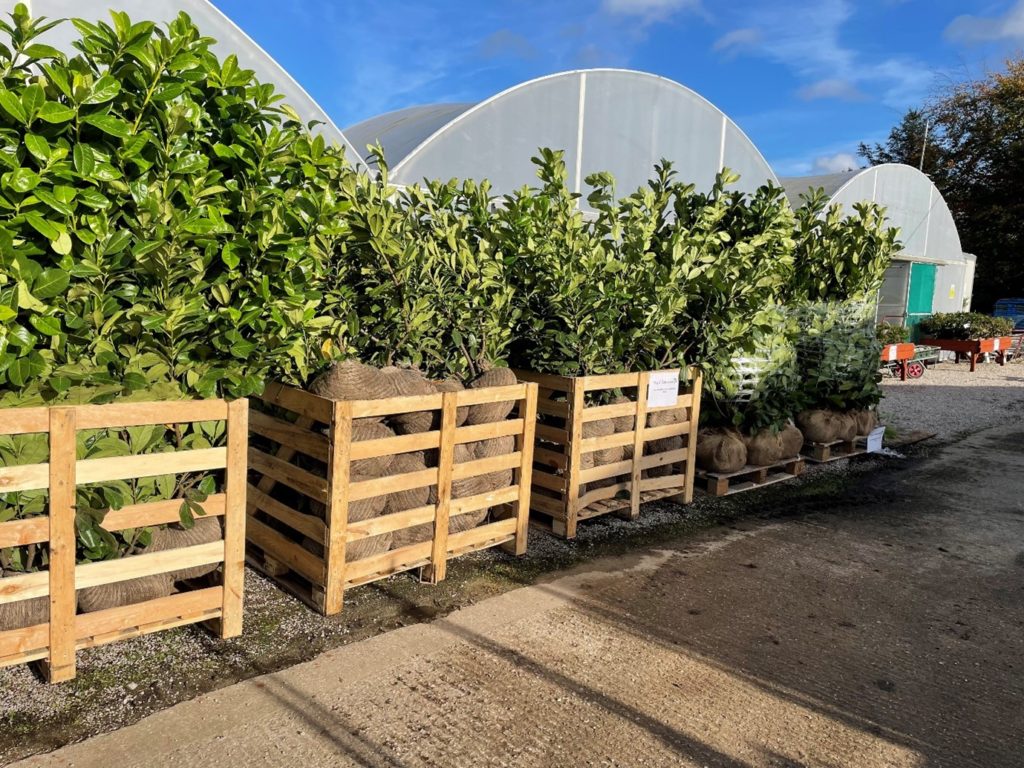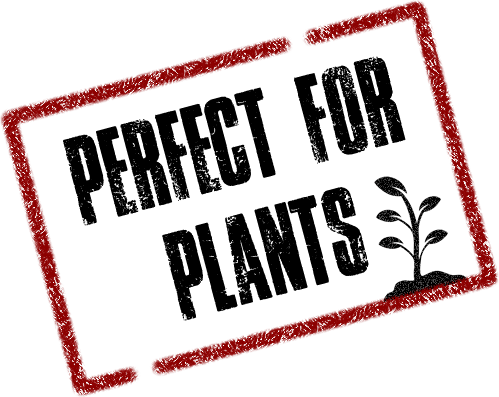Bare roots
Bare root plants are field grown harvested when the plants go dormant in the winter and can then be supplied until the spring. Generally speaking bare root plants are available from November until early April each year, this can change a little depending on the weather condition in the season. Bare root plants are grown in fields and undercut each year to help create a strong root system and to stop the roots developing deep into the ground, enabling them to be cut and lifted in the autumn. They are lifted from the growing fields and go through a grading process where each plant is assessed and bundled into size category, as plants and growing seasons are always variable year to year they are grouped in to size brackets, for example 40/60cm which is the plant range you can expect.
Bare rooted plants are extremely popular as they relatively low cost due to their growing process, they are effectively grown as a crop in the field. The one trade-off is that as they are field grown they do have a slightly higher failure rate, generally this is around 10% however this can vary depending on the variety and time of year. You can reduce this further by using Rootgrow mycorrhizal fungi, we recommend using the 360g and bigger packs as they come with a gel sachet that is ideal for dipping your bare roots prior to planting in the ground.
Our bare root plants are UK grown and where possible are grown in within a few miles of our nursery in Lancashire, we do use some other specialist growers in the UK to ensure we can stock and offer the full range of varieties. If not grown ourselves then the stock we use is grown for us by specialist quality growers ensuring the quality of the plants we supply is second to none.
You will notice we have planting density guides on all our products, for bare roots it varies depending on the size of your plants, on our most common sizes <1 metre tall we generally recommend 3-5 plants in a single row or if you want to create a thick hedge that you plant 5-7 in a double staggered row. The double staggered row is particularly popular for planting native hedge rows.
Our most popular varieties of bare root hedging are usually native varieties and hedging such as; Beech, Hornbeam, Hawthorn and Mixed native hedging however we do also sell a lot of evergreen varieties such as; box, Privet, Cherry Laurel and Yew.
All of our bare root plants can be delivered in boxes making them a really cost effective way of planting.
If you aren’t quite ready to plant when you order arrives don’t worry, they can be stored in a sheltered dark space (like a garden shed) for a week ensuring they are sprinkled with water every couple of days. Alternatively if it is going to be a little longer you can dig a hole and heal the plants roots into the hole and they will be fine if watered every couple of days for a couple of weeks.


Root balls
Rootball plants are also field grown plants and are available from October until April. Rootballs are more mature plants than bare rooted and the surrounding Root and soil is dug out of the ground and wrapped in a hessian biodegradable sacking. These mature transplants are then transported out to customer onto pallets as they are far too heavy to be delivered in boxes. When planting do not take the sacking off as they can be planted in the grown and this will rot away over time, tacking this off can sometimes disturb the roots and cause complications.
As these are field grown plants they are much stronger and thicker than pot grown alternatives, for this reason they are extremely popular when trying to create an instant impact weather that be as a one off shrub or as a hedging screen. For that reason the planting density required is significantly less than bare roots or pot grown plants. They do have a slightly higher failure rate than a potted plant but like the bare rooted plants this can be reduced through the application of Rootgrow mycorrhizal fungi, which is really useful especially when planting field grown plants.
We have specialist growers that grow a range of the most popular varieties, they include; Cherry Laurel, Portuguese Laurel, Box, Yew, Western Red cedar and Beech. We offer a range of sizing for each variety but often we have others available please contact us on [email protected] if you have any specific requirement that you would like us to help with.
Rootballs are big mature plants and therefore need to be delivered on pallets, we deliver on pallet across the UK for a small charge.
We do have a stock holding of rootballs but try to keep this to a minimum ensuring our stock is fresh and where possible only out of the ground for a week or two before you receive delivery, if you have a requirement for a large volume it may take a little longer than the 2-5 working days, please email us at [email protected] and we can help to give you further details.














